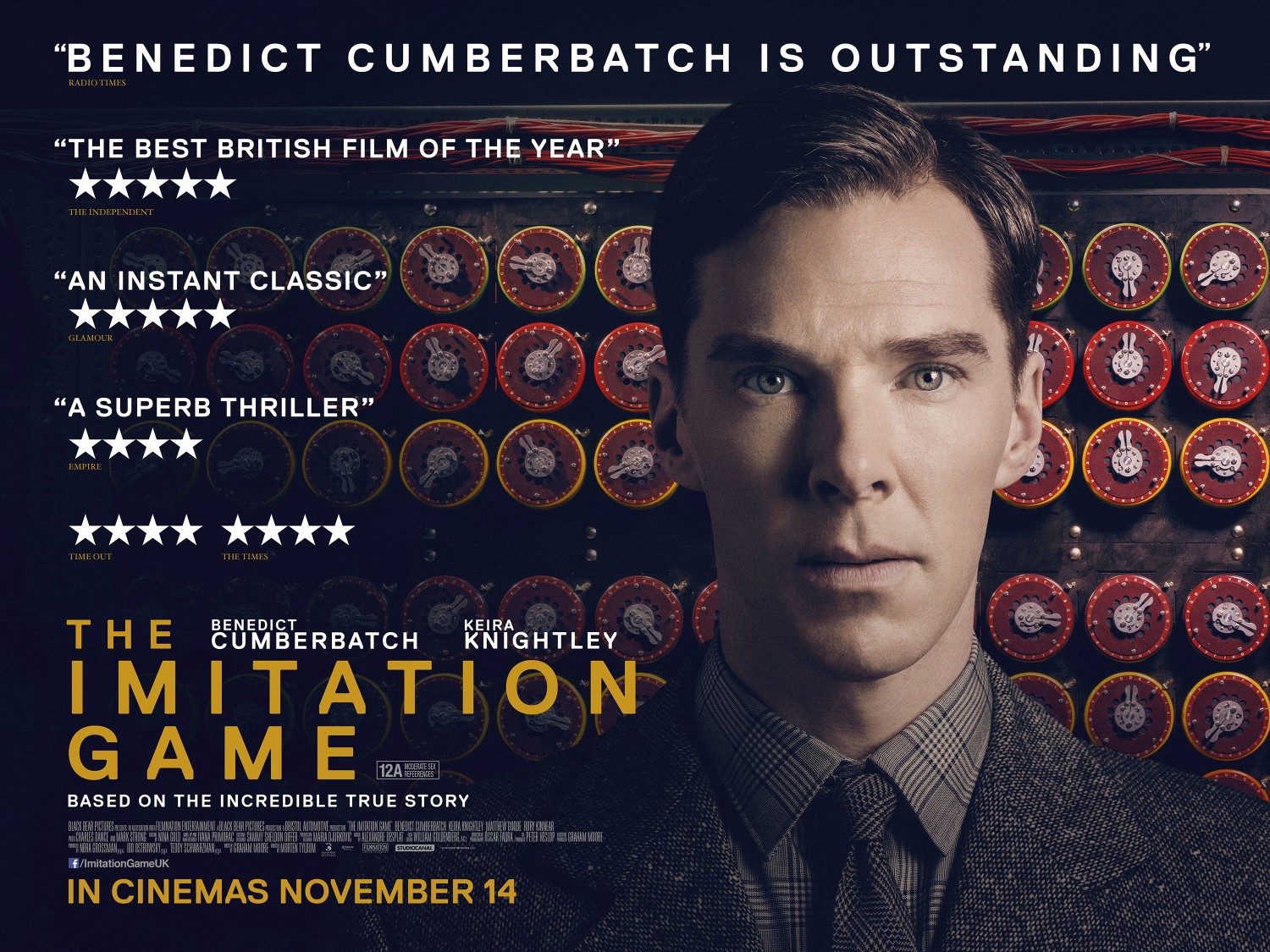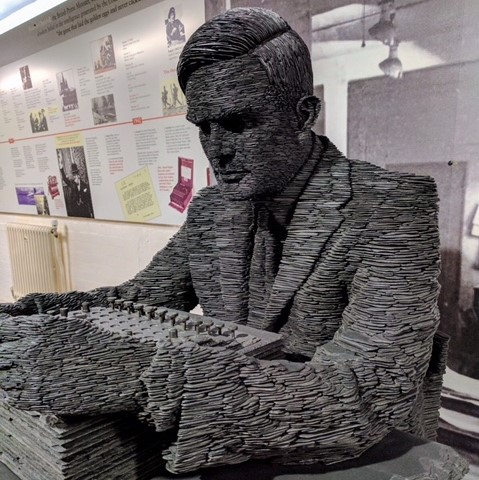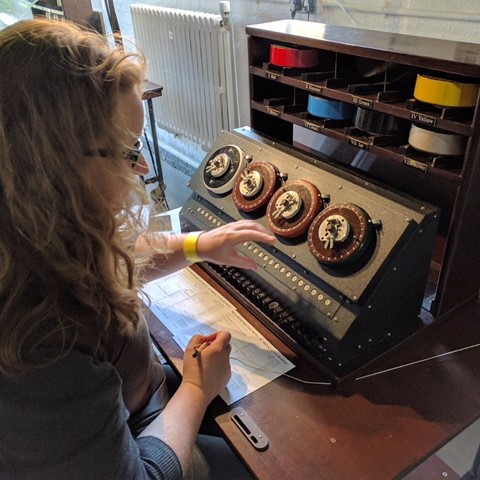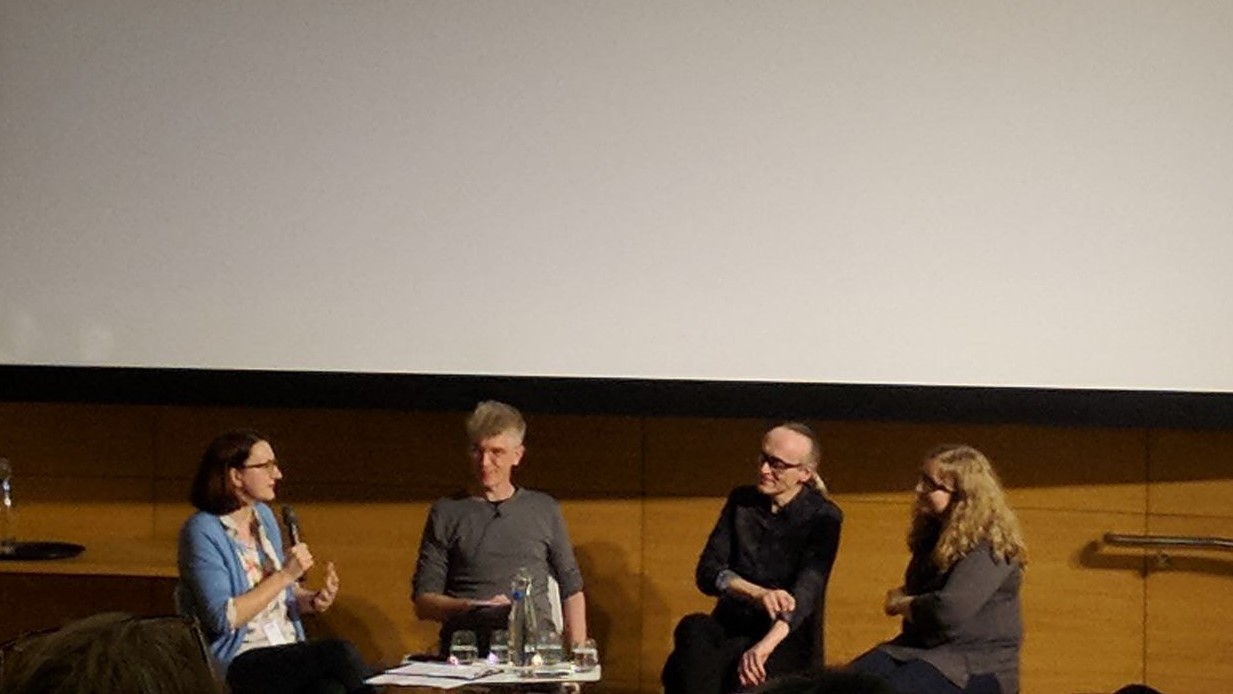Imitation Game at The Crick
Our next door neighbours here in Kings Cross - The Francis Crick Institute - have a wonderful series of events that are open to the public. Last Wednesday 10th January I was delighted to take part in a panel discussion after they showed The Imitation Game as part of the Science on Screen film festival.

The Imitation Game tells the story of Alan Turing who worked to break the German Enigma machine at Bletchley Park during World War II. It also highlights his death by suicide in 1954 after undergoing chemical castration as punishment for being gay.
The film is loosely based on Alan Turing: The Enigma by Andrew Hodges but one of the first points we made in our panel discussion was to highlight a few of the inaccuracies that have been introduced by dramatising the story of Turing’s life. It’s my personal opinion that inspiring people to learn more about Alan Turing (and having a very engaging film going experience!) is worth some of these errors…but I really encourage you to understand some of the key inaccuracies for yourself! These articles at The Guardian and Slate are good places to start, and visiting Bletchley Park is a truly wonderful day out! Turing did not break codes alone, and I particularly enjoyed learning about how many women had contributed so significantly to the allied war effort from that secret location.


Around 200 people joined us in the Crick auditorium to watch the film, and at the end Aengus Stewart - head of Bioinformatics at the Crick, James Briscoe - a Group Leader of the Developmental Dynamics Laboratory and member of the Crick’s Equality, Diversity and Inclusion (EDI) committee, and I discussed a couple of key themes from the film.

We talked about the importance of diversity in science. Ensuring that everyone can come to work and not have to hide who they are is not only the moral thing to do, but also collaborations are more effective and powerful if they take different view points and experiences into account.
We discussed bias in machine learning and artificial intelligence and the importance of representation in who builds the tools we use to affect the lives of millions of people every day.
I talked about what Data Science is. (Spoiler alert, no one really knows, but here’s the wikipedia page to help you get started!) For me it is the emergence of a new field that comes from the interactions of currently existing areas of research. A set of questions that can only be answered when people with different skill sets come together.
I’m very proud that the Alan Turing Institute celebrates his contributions to so many fields, and I was delighted to answer amazing questions from the audience members at The Crick last week. Huge thank yous go to Kath Nightingale for facilitating our discussion and Rosie Waldron for organising the event.
